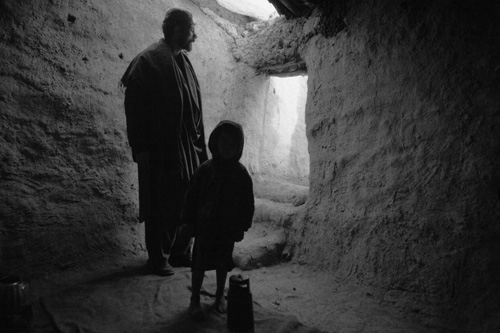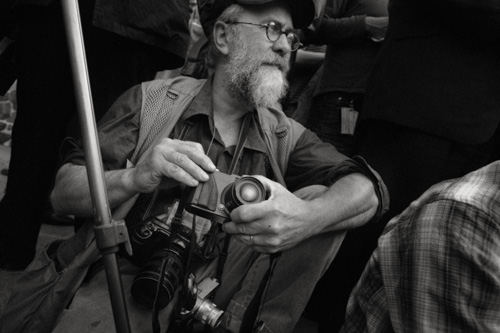Kabul, June 7, 2010
I’m working on a story about the Afghan bureaucracy. I’m quite stuck. First of all because it’s hard to have access to photograph in the ministries, and second because it’s not clear to me what I want. It could be a portrait story. It could be about the places. The subject is quite dull itself, visually there is not much there, this is exactly the kind of story that can come out really bad. I’m taking pictures of offices and bureaucrats.
I want to use this post to collect my ideas.
It could be interesting to capture the stratifications of the many empires that conquered this land and in turn tried to reshape its istitutions. Russian buildings now inhabited by market oriented, American trained bureaucrats.
In my work I would like some of the atmosphere of Guy Tillim’s Avenue Patrice Lumumba, the surrealist and paradoxical nightmare of Kafka’s “The trial”, as well as my omnipresent obsession for the mood and the light in Majoli’s work. I see the story in color, medium format kind of photography, sharp, silent. I don’t want portraits with somebody staring at me from a desk. Maybe I can ask them to pretend they are working (I can not hope for something real in a 30 minutes tour with two people that tell me what can I photograph and 5 minutes in a single office, as usual what the photographer will try to achieve is an illusion that resembles reality). Public officers are really concern about security. I’m not allowed to photograph most of the places. They are scared the pictures can be used to stage attacks on government buildings.
It’s more or less two days that in separate moments I try to write this post. I was hoping that the act of writing would have materialized some ideas. And that was exactly what happened!
I can focus this story on the Russian made building, the overlapping images of old building and new yuppies, and teas and afghan handshaking and huggings and power boastings and salam aleikums and tea again. Everything is already there, I just need to put it together, slowly, a tea at the time, following the slow pace of Kabul. A pace that is sometimes painfully slow, considering the many holidays of the government employees. I already try last time to work on this story but there wasn’t time enough.
I need to go in there with some ideas in my mind to play around, but I also know that a story can then take a life of itself an end up with something completely different. I will try to let it flow as much as I can. Inshallah.
p.s. I strongly suggest to read this article, it’s a good picture of what is going on in Afghanistan and what the outcome of this war will be.









